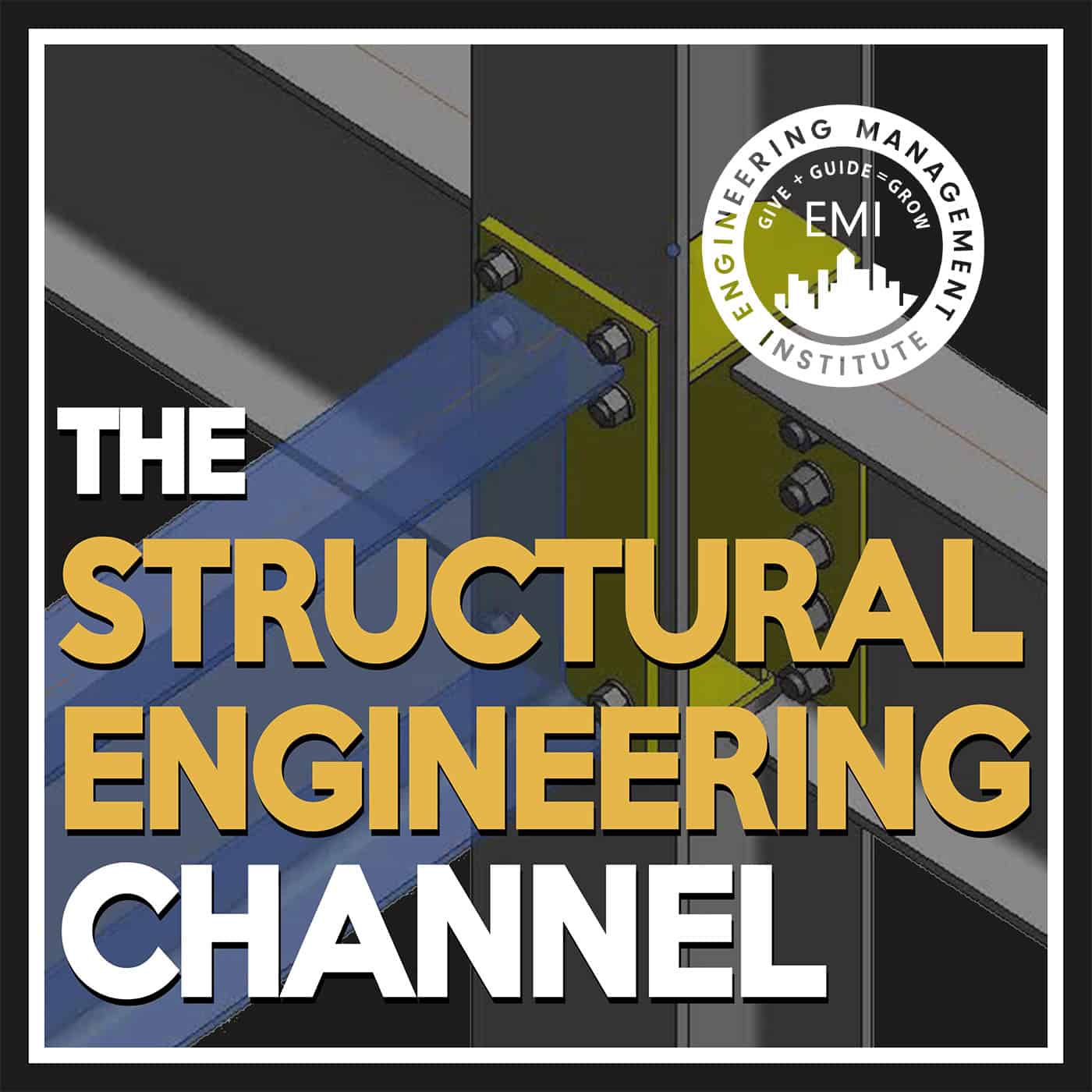TSEC 124: Leveraging BIM for Effective Stakeholder Collaboration
Description
In this episode, we talk with Cesar Matheus, project manager at Solid Rock Structural Solutions, about his background in structural engineering and his specialization in seismic resilience. He explains the concept of building information modeling (BIM) and its impact on project coordination, visualization, and data management. He also emphasizes the importance of BIM standards and offers strategies for effective collaboration and communication among project team members and stakeholders.
***The video version of this episode can be viewed here.***
Engineering Quotes:
Here Are Some of the Questions We Ask Cesar:
What motivated you to specialize in seismic resilience, and how has your role at Solid Rock and KPFF contributed to shaping your career in this field?
Did growing up in earthquake-prone Venezuela inspire your desire for resilience, and how did that influence your perspective?
Can you briefly explain BIM and how it combines project coordination, visualization, and data management?
How has the integration of BIM improved and streamlined collaboration among the various parties involved in the construction process?
Can you elaborate on the significance of BIM standards and why they are crucial?
Do companies face issues when their BIM standards differ, or do they easily align when collaborating on aspects like mechanical and plumbing?
How do you strategize and set standards in meetings before a project among all parties involved?
How do you coordinate with different disciplines and team members in the BIM environment, considering the vast communication and building information involved?
What are some common challenges in using BIM for structural engineering, and do you have any tips to overcome them?
Given the advancements, particularly in software, where do you anticipate BIM modeling heading in the next few years?
For engineers just starting, particularly those interested in leveraging BIM technologies, what advice would you offer them?
Do you have any advice for foreign students seeking employment in the U.S.?
Here Are Some of the Key Points Discussed About Leveraging BIM for Effective Stakeholder Collaboration:
Passionate about earthquake engineering, Cezar is driven to design structures for public safety. His practical experience at companies like KPFF and Solid Rock is crucial, in applying theoretical knowledge to real challenges. Cezar emphasizes the importance of mentorship for a successful career in seismic resilience. Overall, a role in a company focused on seismic resilience offers Cezar a solid foundation for meaningful contributions to the industry and community.
Growing up in earthquake-prone Venezuela inspired Cezar's passion for resilience. Experiencing seismic events firsthand fueled his desire to contribute to public safety. The challenges of living in such an environment shaped Cezar's perspective on the importance of seismic resilience in creating safer communities.
BIM is not just for drawings — it's a digital powerhouse for coordination and data management. Acting as a hub, BIM integrates design data, facilitating collaboration and minimizing conflicts. Real-time tracking of changes empowers informed decision-making at every project stage.
BIM is a game-changer for collaboration. It's a central hub for sharing up-to-date project info and enhancing communication among different stakeholders. With advanced visualization tools, it bridges the gap between technical and non-technical teams. BIM integrates data across disciplines, spotting conflicts early. Importantly, it boosts risk management, helping identify and mitigate potential issues for smoother project outcomes.
BIM standards are vital for smooth projects, ensuring consistency and efficiency.
More Episodes
In this episode, we talk with Ryan Jeansonne, P.E., civil structural engineer at Titan Delta, who shares powerful insights on mentorship and continuous learning in engineering, inspiring both new and seasoned professionals to take bold, impactful steps in their careers.
***The video version of...
Published 11/14/24
Published 11/14/24
In this episode, we speak with Farshad Mirshafiei, Ph.D., P.Eng., CEO and co-founder of Sensequake, about how advanced technologies are transforming structural assessments and redefining safety and infrastructure resilience in buildings and critical systems.
***The video version of this...
Published 10/31/24


